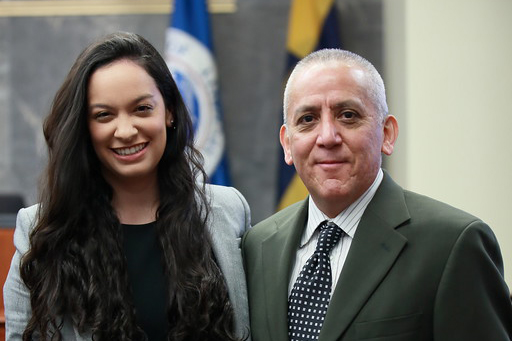“What is the Diversity Visa Program?
Section 201(e) of the Immigration and Nationality Act (INA) provides 55,000 visas a year for a class of immigrants known as “diversity immigrants,” from countries with historically low rates of immigration to the United States.

The number temporarily has been reduced to 50,000, to make up to 5,000 visas a year available for use by Nicaraguans who are eligible for the NACARA program.
The eligibility requirements are stated in section 203(c). The applicant must have been born in a designated country. There are exceptions based on other connections to the designated country. Also, he must have at least a high school education or its equivalent, or two years of work experience that required at least two years of training or experience to perform.
Reasons for terminating it.
While it may be difficult to justify terminating the program on account of the recent terrorist attack, there should be some benefit to offset the fact that the program could bring terrorists to the United States. If the New York City terrorist hadn’t been here, he wouldn’t have been able to commit a terrorist act here.
The claimed benefit is diversity, but does the program really make America more diverse? The United States has a population of 326,199,506people, and that number is increasing by one international migrant (net) every 32 seconds. How does adding 50,000 aliens a year make the country more diverse?
Nevertheless, the program is bringing a lot of people in an absolute sense. Since 1995, it has made visas available to roughly one million people who have no ties to the United States. Is this fair to American citizens and legal permanent residents who get visa petitions approved to bring family members here and then have to wait years for visas to become available?
. . . .
Lastly, the visas are allocated randomly on the basis of a lottery run by the Department of State.
“A lottery is a crazy way to run an immigration system,” according to Steve Yale-Loehr, an immigration law professor at Cornell. “No other country selects immigrants based on a lottery.”
Wouldn’t the program add as much diversity if the same number of aliens, from the same group of countries, were to be selected on a merit-based point system?
My prediction is that the program will be terminated to make the visas available to family and/or employment-based immigrants.”
I don’t know that I see enough information to justify terminating the program at this time. But, Nolan’s point that the visas might better be used for other categories as part of overall immigration reform seems like something that should be part of the discussion.



